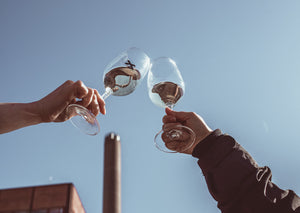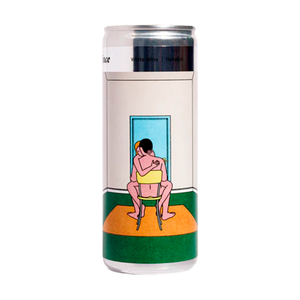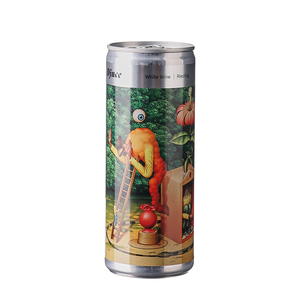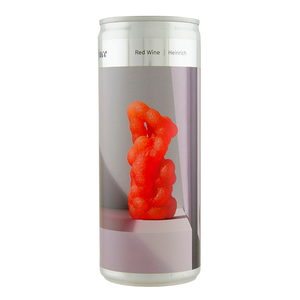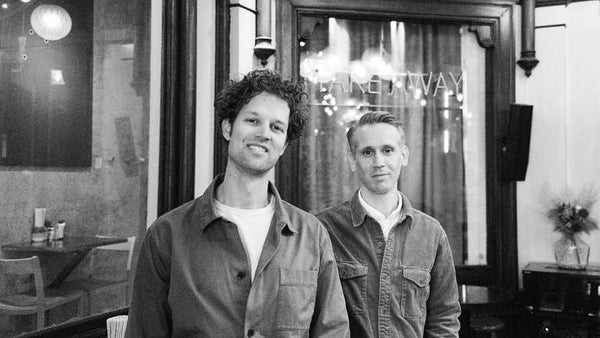
Djuce
Did you know that 95% of wines are enjoyed within a week of buying them and only 5% end up being aged longer? In terms of responsibility, it makes sense to find a packaging option for the vast majority of wines that requires little energy, whose transport does not cause a significant amount of carbon dioxide emissions due to its weight, and whose recycling is particularly efficient. Glass bottles, which are the most common form of packaging for wine, break easily and are therefore not suitable for parties, nightclubs or nature tourism, for example.
The Swedish Djuce is a wine project created by Philip Marthinsen, Pontus Lindqvist, David Dworsky and Victor Köhler that wants to challenge and shake up the prevailing wine world. Even if vineyard work follows ecological models as much as possible, it is only a part of wine production, and not from a climate perspective, reduce the carbon footprint of the entire production sufficiently. Therefore, Djuce decided to offer aluminum cans as an alternative packaging method, whose environmental impact is significantly lower than bottles, up to 79% smaller, packaging that is easy to handle and transport, and whose size offers new types of enjoyment. Compared to glass bottles, recycling cans is 28% more emission-efficient, cans are 20 times lighter than bottles, and also twice as efficient to transport. Cans also don't break as easily as bottles, and cool down quickly, so there are plenty of arguments for the position of cans as the packaging form of the future. The production of aluminum in itself is not ecological due to the energy requirement and carbon dioxide emissions. Fortunately, recycling helps with this, because up to 3/4 of all aluminum ever produced is reused and the recycling potential of the raw material is practically eternal. In Finland, the recycling rate of beverage packaging is about 95%, thanks to our long-standing deposit system.
At the end of 2022 , Duncan Brownlee also joined Djuce's team, and together the five have prepared to conquer the world with innovative and with its impressively designed packaging, inside which organically produced wines from quality producers have been selected. In the wine selection process, cooperation has been made with several top sommeliers and recognized producers have been selected for the project, such as Heinrich, who is familiar from our selection. After the launch of the wine family, many wine producers have approached Djuce with an interest in expanding the packaging options for their own wines. As wine growers, producers are often the first to notice the effects of climate change on wine production, and therefore realize that it is high time to act.
According to forecasts, by 2025, 10% of all wine in the world will be packed in cans. Of course, no one assumes that all the world's wine will be enjoyed in cans in the future, but most of the world's wines are not meant to be aged either. The aluminum can keeps the wine in good condition for at least a year and does not affect the taste of the wine, so a change in a more ecological direction does not mean a qualitative compromise. In the end, it's about whether we ourselves are ready to change the prevailing idea that wine should be served from a glass bottle.
